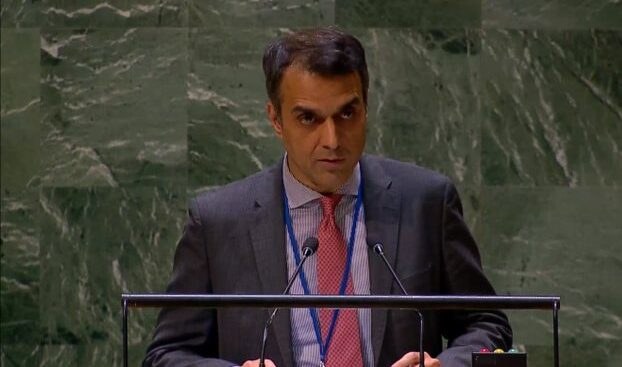ISLAMABAD: A senior Pakistani diplomat at the United Nations urged technology-producing nations on Friday to remove restrictions on the equitable spread of scientific knowledge and equipment, saying it would help advance developing countries.
Access to emerging technologies in the Global South is often influenced by geopolitical concerns, as international relations and trade policies can dictate the availability and distribution of these resources.
This geopolitical gatekeeping not only restricts technological advancement in less developed nations but also perpetuates global inequities in access to cutting-edge tools and innovations.
In case of Pakistan, US export controls limit access to high-end technologies, particularly those with dual-use capabilities that might be diverted for military purposes.
“Unless fair and equitable access to new and emerging technologies is provided to developing countries, and all undue restrictions removed, the Global South will lag even further behind in achieving the Sustainable Development Goals,” Ambassador Usman Jadoon, Pakistan’s Deputy Permanent Representative to the UN, told a Security Council meeting.
According to an official statement, he underscored the transformative power of science in improving lives and anticipating threats through climate modeling, disease surveillance, and early warning systems.
Additionally, he highlighted Pakistan’s significant strides in nuclear technology, space exploration and biotechnology, saying that his country wanted to leverage scientific advancements for progress and stability.
“New and emerging technologies play an undeniable role in the progress of any society and in maintaining international peace and security when used in accordance with the principles of the UN Charter,” he continued.
Ambassador Jadoon mentioned Pakistan’s concerns about the unregulated military applications of emerging technologies and supported calls for establishing legally-binding norms to regulate their use, ensuring regional and global stability.
He affirmed his country’s commitment to unlocking the potential of science for peace and progress, advocating for responsible scientific practices and international cooperation to build a safer and more prosperous future.















